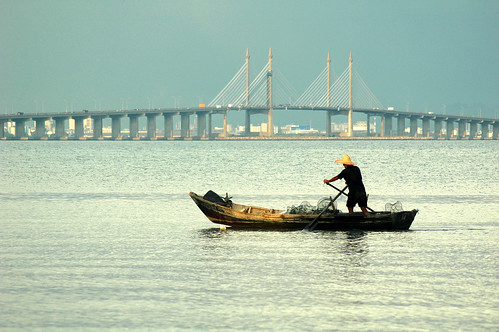
International Conference on “Decolonising Our Universities” June 27-29th, 2011, Penang, Malaysia
Multiversity is pleased to announce its Fourth International Conference on the subject of “Decolonising Our Universities” being held in Penang, Malaysia, from June 27-29, 2011. The conference is being jointly organized by Universiti Sains Malaysia (USM) and Citizens International (CI), both based in Penang.
The specific objective of the conference is to provide a platform to scholars, researchers and activists to share work done by them individually or by their departments and institutions on drafting university curricula, syllabuses and courses in social sciences teaching and research that consciously avoid, deny or reject Eurocentric frameworks and assumptions.
The conference is not focused on Eurocentrism itself. The explicit purpose is to encourage academics within the Global South to move out of a Eurocentric worldview in the sphere of knowledge production, especially in the social sciences, and to help regenerate or create fresh models of intellectual enquiry and research more in touch with their own realities and intellectual traditions.
It is an undisputed reality of our times that most academic knowledge has been hegemonized by the western world. The hegemony has extended to even the perception of what constitutes knowledge. This situation of tyranny has prevailed now for over 200 years. Efforts are even now underway to expand further the reach and influence of existing social science models from European and American universities and to intensify dependence of the academic community located within the Global South on these.
There have been several attempts to resist this hegemony in knowledge production and sharing or what Ward Churchill has referred to as the empire of “white studies.” There is an intensive discussion underway on the reality of Eurocentrism and on the baleful distortions that affect knowledge when it is impregnated by such ethnocentric western assumptions and orientations. This discussion is taking place across the board beginning from anthropology and extending to the media and communications. African scholars, for example, have recently challenged the propriety of teaching traditions of western philosophy contaminated with racism in African universities.
By and large, however, thousands of universities across the Global South have uncritically imported, adopted or inherited the prevailing model of social science research from the European academic community (which, of course, also comprised their erstwhile colonizers). Prestigious universities like Delhi, for example, continue to teach courses in which the bulk of the content is unabashedly imported from the west. This, nearly sixty years of being politically free.
Multiversity – a joint project of Citizens International in Malaysia headed by S.M. Mohammad Idris (also President of the Third World Network), and Other India Press headed by Claude Alvares from India – has held three earlier international conferences to take this discussion and its momentum forward. The first conference was held in 2002, the second in 2006 and the third in August 2010. (See www.multiworldindia.org.) At these conferences several discussions have taken place on these issues and it was therefore resolved to bring together in June this year:
a) Researchers and scholars who have done substantial work in excoriating the ghost of Eurocentrism consciously from their teaching and academic work or institutions;
b) Persons at the university level including Vice Chancellors who might be keen to introduce non-Eurocentric research methodologies in their own universities and departments.
c) Innovators who have ventured beyond the petrified framework of lectures in lecture halls and developed methodologies of learning that once again excite students, enthuse society and economy, and help generate new knowledge that is of use to society as a whole.
For the conference, the Secretariat is preparing for circulation a preliminary Source Book containing the output of scholars and intellectuals who have done work in this specific area. However, Multiversity is also committed – pursuant to the conference – to publishing a volume comprising all the presentations made during the event. This would also perhaps be the first major text reflecting academic attempts emanating from the Global South to depart from the regime of Eurocentric social sciences.
Claude Alvares
Multiversity Coordinator
Goa, India
(For more information about the conference, please visit www.multiworldindia.org, or email: Claude Alvares (goafoundation@gmail.com) or Uma Ramaswamy (idris_md@streamyx.com)
Image courtesy of dennisyu68


